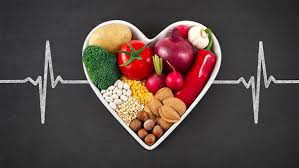Heart-Healthy Eating: Tips for Heart Disease Patients

A heart-healthy diet is crucial for managing heart disease. Eating nutritious foods can help control risk factors such as high blood pressure, high cholesterol, and obesity, which contribute to heart disease. Here are some tips for heart-healthy eating:
-
Focus on fruits and vegetables: Aim to fill half your plate with fruits and vegetables. They are rich in vitamins, minerals, and fiber, and low in calories.
-
Choose whole grains: Opt for whole grains such as brown rice, whole wheat bread, and oatmeal. They are rich in fiber, which helps lower cholesterol and improve heart health.
-
Include lean protein sources: Choose lean protein sources such as skinless poultry, fish, beans, and legumes. These foods are low in saturated fat, which can help reduce cholesterol levels.
-
Limit saturated and trans fats: Avoid foods high in saturated and trans fats, such as fatty meats, fried foods, and processed snacks. These fats can raise cholesterol levels and increase the risk of heart disease.
-
Reduce salt intake: Limit the amount of salt in your diet by using herbs and spices to flavor your food instead of salt. High salt intake can lead to high blood pressure, which is a risk factor for heart disease.
-
Watch portion sizes: Be mindful of portion sizes to avoid overeating. Use smaller plates and bowls to help control portion sizes.
-
Stay hydrated: Drink plenty of water throughout the day. Limit sugary drinks and alcohol, as they can contribute to weight gain and increase the risk of heart disease.
In addition to a healthy diet, it's important for heart disease patients to monitor their heart health regularly. This includes monitoring heart rate, ECG, and other vital signs. PulseNexa's FitActive Health Watch is a great tool for this purpose. It is medically certified for ECG monitoring, providing medical-grade ECG monitoring services. With its advanced features, it can help heart disease patients track their heart health and stay informed about any changes or abnormalities.
In conclusion, a heart-healthy diet is essential for managing heart disease. By following these tips and monitoring your heart health regularly, you can take control of your heart health and reduce the risk of complications from heart disease.


